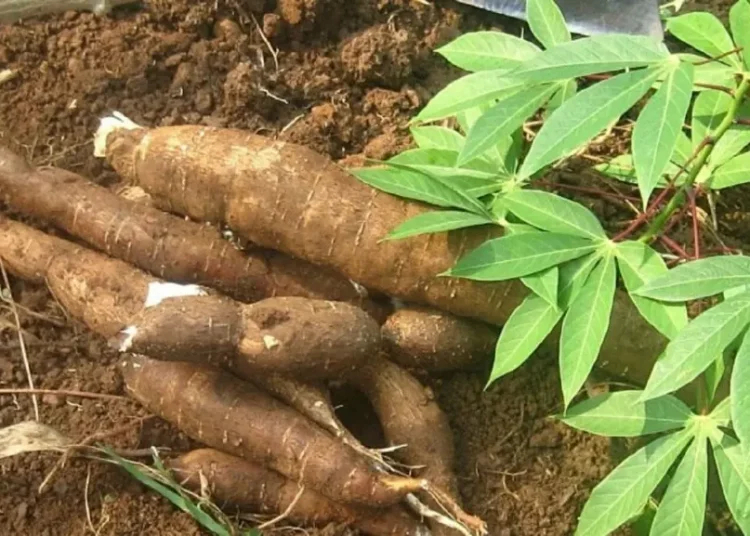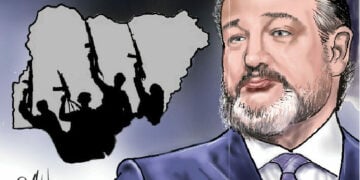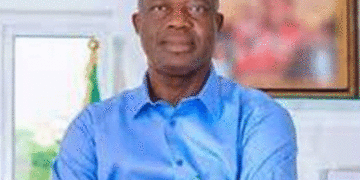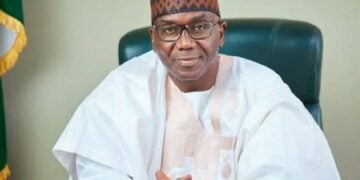As Nigerians grapple with the current scarcity of wheat flour, stakeholders say this could have been averted if cassava production supply is able to meet the huge demand.
This as the stakeholders noted that the scarcity of cassava tuber remains a challenge.
With the ongoing war between Russia and Ukraine, some wheat-importing countries, including Nigeria, are already reacting to the increase in the prices of wheat-based products.
Ukraine and Russia are major producers of wheat. They account for about 30 per cent of the global wheat export. Wheat is a major raw material for the production of flour which is used for bread and some other confectionaries.
Stakeholders say the effect of wheat price increase in the global market and availability for export would have been minimally felt in Nigeria if the highly publicised cassava bread project had been sustained.
According to them, cassava flour could easily have served as a buffer and a cushion for prices and quantity of flour needed locally.
Cassava bread has been in the making in Nigeria for quite a while.
They noted that the cassava flour project failed due to scarcity of the product as the production in Nigeria is principally in the hands of smallholder farmers who produce cassava primarily for home direct consumption, with supply unable to meet the huge demand.
Speaking to LEADERSHIP, the national president of All Farmers Association of Nigeria (AFAN), Arc. Kabir Ibrahim stated that former minister of agriculture, Dr Adesina Akinwumi, who is now the president of Africa Development Bank (AfDB), actually promoted cassava flour for about 20 per cent inclusion in wheat bread, but that proposal was not sustained.
He stated that there was a good drive to add cassava to bread production, but that the product was not doing very well in the market, with people complaining about the quality and weight of the product.
“This was not popular with people as it was a new product but probably if we had continued with it, maybe we would have gotten it right and popular with the bakers. Wheat flour is very costly now,” he said.
Ibrahim stated that the government put in some efforts then, gave incentives, with the Bank of Industry (BoI) giving a loan facility based on cassava cultivation for bread.
“The promotion was so high but the farmers could not meet the demand,” he said, adding that for Nigeria to embrace wheat cassava bread, a lot of awareness must be created on it.
On his part, the national leader, Progressive Bakers Association of Nigeria, Prince Jacob Adejorin concurred with Ibrahim that there was shortage of cassava to meet the local demand.
He lamented that cassava processors do not have enough cassava to process, citing examples of high cost of garri and cassava powder in the market.
He urged the present government to support cassava farming by providing fertiliser, among others.
Meanwhile, stakeholders stated that significant progress can be made by increasing the availability of cassava flour through both expansion of cassava production and incentives to producers. Also, there is a need for continued consumer education to sustain the acceptability of the consumers and to encourage those that do not accept cassava-made products to do so.
“It is also important to maintain the policy initiative with a sustainable institutional framework to avoid the problems of policy inconsistencies as has been the case in Nigeria,” they said.
The former minister of Science, Technology and Innovation, Dr. Ogbonnaya Onu, recently at the 20th meeting of the National Council on Science, Technology and Innovation (NCSTI) held in Abuja revealed the federal government’s plans to reduce wheat importation into the country, adding that Nigeria can make a substantial amount of savings through the reduction of imports.
Onu noted that “The COVID-19 pandemic has taught every nation one lasting lesson, and that is the importance of self-reliance. The current Russia-Ukrainian war also shows clearly that every nation, both small and big alike, must effectively utilise Science, Technology and Innovation (STI) to ensure that its territorial integrity will always be protected.”





